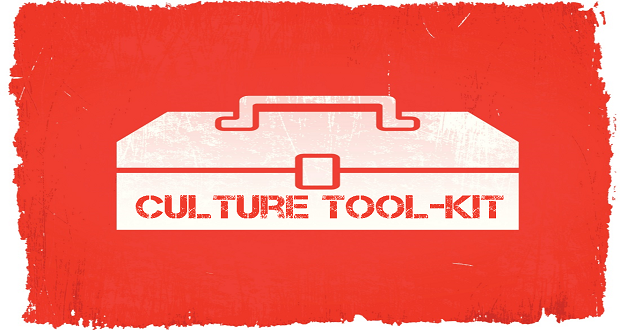
There has been something of a seismic shift in the last twenty years in the way the sciences understand culture. The most common and influential conception of culture was something like a web of beliefs, values, and morals that affected the practices and rituals of entire groups of people. The culture as a web metaphor has been so pervasive that this has become the standard way the public, and many organizations, define and deal with culture.
The change in understanding of culture, in sociology at least, can largely be traced back to a 1986 article by Ann Swidler, in which she argues that culture is more like a “tool-kit” than a stable web of meanings. Swidler challenged the idea that culture exists as something “out there” that deeply affects people caught in its web. Instead, she argues, that each of us has different cultural tool-kits that we carry around and use in our everyday choices. Although the tools in our tool-kits may vary depending on our race, ethnicity, nationality, or religion, each of us is free to use various parts of our culture depending on our life circumstance at the moment. This is admittedly an oversimplification of a very long scientific conversation, but let me highlight a few reasons why thinking about culture as a tool-kit versus a web is important, especially for organizational leaders.
We see the effects of the “culture as a web” conception when media outlets talk about “Latino” or “Black” culture, instead of Latino or Black culture(s)—in the plural. As if all of Latino experience can be summed up with a single label. Or when organizations offer training for cross-cultural work with German culture or American culture. The assumption (or implication) is that employees can learn a single set of cultural gestures, phrases, or beliefs that would represent all of Germany. The tool-kit metaphor on the other hand, allows for more complexity and representation in its conception of culture. It also makes sense of our day-to-day experiences of our own cultures.
I know culture is already a slippery and complicated concept to pin down, so why make it even more complex? It is undeniably easier and more practical to have a more simple definition of culture but I think the benefits of the tool-kit approach outweigh the costs. A recent op-ed in the NY Times illustrates the benefits of a more nuanced view culture. In this article, religious scholar Reza Aslan, critiques the recent remarks from Bill Maher and Ben Affleck on the nature of Islam. Both, Reza argues, rely on too simplistic conceptions of the way religious culture works—like a powerful web. Instead, Reza argues that individuals often use religious scriptures and ideals (culture) in ways that may reflect other parts of their culture—politics, ethnicity, nationality, or gender. Thinking of religious culture as a tool-kit that people use not only frees us from assuming that all religious adherents are the same, but also sheds light on the ways some religious zealots may use their religions for violent ends.
As I said before, this is a brief summary of a much deeper conversation that is ongoing amongst cultural scholars. The implications however, of thinking about culture as a tool-kit that we use as opposed to culture as a web that we are stuck in, offers practitioners a new way to make sense of the complexity of culture as well as the various ways it shapes our experiences. I hope this post will spur your own thinking about the ways culture shapes us, and the ways we use it to shape the world.


















